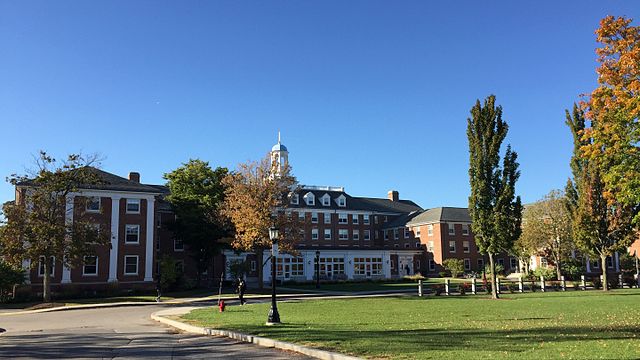In Other Ivory Towers: Other NESCACs offer booster shots on campus; Williams’ plan still in the works
December 8, 2021

Although the College has yet to announce an official policy on COVID-19 booster shots, several NESCAC peer institutions have started requiring boosters as part of campus-wide vaccine mandates and opening vaccine clinics on campus.
Wesleyan President Michael Roth announced Nov. 23 that the university would require booster doses of a COVID-19 vaccine for all students, faculty, and staff who had not previously received vaccine exemptions. Students are required to receive booster doses by the start of Wesleyan’s spring semester in late January, while faculty and staff must receive booster doses no later than 30 days after becoming eligible for one. To facilitate this, Wesleyan will be holding two booster shot clinics for students unable to get a booster appointment at local pharmacies.
In contrast to Wesleyan, NESCACs such as Tufts University, Amherst College, and Colby College are holding on-campus booster clinics but not requiring the shots. Clinics have been held at all four of Tufts’ campuses, and both Amherst and Colby reported high demand from students interested in receiving their boosters on campus.
Bowdoin College and Bates College, like Williams, have not made any announcements regarding on-campus clinics or booster requirements.
In an email to the Record, Associate Vice President for Communications Meike Kaan wrote that the College is currently “working with regional medical partners to set up a booster clinic [on campus].” She also reiterated that the College “has not yet determined if [it] will be requiring the booster” as part of the student, faculty, and staff vaccination mandate.
Out of 150 students surveyed by the Record this week, 69 percent said that the College should require a booster shot, while 15 percent said the College should not require one, and 16 percent said that they were unsure. Nineteen percent of the students sampled said that they had already received a booster.
Chair of Economics Lara Shore-Sheppard, an expert in health economics and a member of the public health program’s faculty advisory committee, said that it is generally a good idea for people to get the booster shot and added that although it is not yet fully known how the Omicron variant is affected by the booster, the research that the FDA and CDC is reviewing seems promising. She said that while a booster clinic on campus would increase the vaccination rate of College students, faculty, and staff, “The hard part around that is knowing the resource constraints.”
“Getting the vaccine is one thing,” Shore-Sheppard said. “The much more difficult thing is actually [finding] personnel to administer it … It’s a lot easier for people to get the vaccine if you bring it to them. It’s just that it might not be feasible.”








